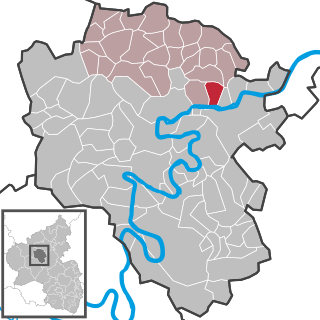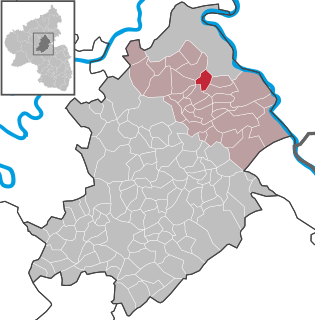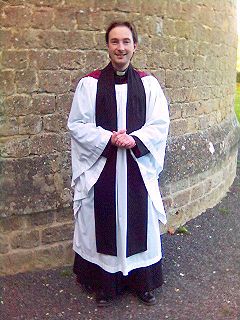Related Research Articles

The Fourth Council of the Lateran was convoked by Pope Innocent III with the papal bull Vineam domini Sabaoth of 19 April 1213, and the Council gathered at Rome's Lateran Palace beginning 11 November 1215. Due to the great length of time between the Council's convocation and meeting, many bishops had the opportunity to attend. It is considered by the Catholic Church to have been the twelfth ecumenical council and is sometimes called the "Great Council" or "General Council of Lateran" due to the presence of 71 patriarchs and metropolitan bishops, 412 bishops, 900 abbots and priors together with representatives of several monarchs.

A tithe is a one-tenth part of something, paid as a contribution to a religious organization or compulsory tax to government. Today, tithes are normally voluntary and paid in cash or cheques, whereas historically tithes were required and paid in kind, such as agricultural produce. After the separation of church and state, church tax linked to the tax system are instead used in many countries to support their national church.
A vicar is a representative, deputy or substitute; anyone acting "in the person of" or agent for a superior. Linguistically, vicar is cognate with the English prefix "vice", similarly meaning "deputy". The title appears in a number of Christian ecclesiastical contexts, but also as an administrative title, or title modifier, in the Roman Empire. In addition, in the Holy Roman Empire a local representative of the emperor, perhaps an archduke, might be styled "vicar".

The Catholic Apostolic Church, also known as the Irvingian Church, is a Christian religious tradition which originated in Scotland around 1831 and later spread to Germany and the United States. The tradition to which the Catholic Apostolic Church belongs is referred to as Irvingism or the Irvingian movement, in honour of Edward Irving (1792-1834), who taught that "God could work miracles in His Church as easily now as two thousand years ago." The church was organised in 1835 with the fourfold ministry of "apostles, prophets, evangelists, and pastors."
Advowson or patronage is the right in English law of a patron (avowee) to present to the diocesan bishop a nominee for appointment to a vacant ecclesiastical benefice or church living, a process known as presentation.

The Tithe War was a campaign of mainly nonviolent civil disobedience, punctuated by sporadic violent episodes, in Ireland between 1830 and 1836 in reaction to the enforcement of tithes on the Roman Catholic majority for the upkeep of the established state church, the Church of Ireland. Tithes were payable in cash or kind and payment was compulsory, irrespective of an individual's religious adherence.

Rennerod is a town in the Westerwaldkreis in Rhineland-Palatinate, Germany. It is the administrative seat of the Verbandsgemeinde of Rennerod, a kind of collective municipality. Within the municipal area, until German Reunification on 3 October 1990, lay the Federal Republic's geographical centre.

In the Roman Catholic Church and the Anglican Communion as well as some Lutheran denominations, a rural dean is a member of clergy who presides over a "rural deanery" ; "ruridecanal" is the corresponding adjective. In some Church of England dioceses rural deans have been formally renamed as area deans.
In the history of Ireland, the Penal Laws were a series of laws imposed in an attempt to force Irish Catholics and Protestant dissenters to accept the established Church of Ireland. These laws notably included Education Act 1695, Banishment Act 1697, Registration Act 1704, Popery Act 1704 and 1709, Disenfranchising Act 1728. The majority of the penal laws were removed in the period 1778–1793 with the last of them of any significance being removed in 1829. Notwithstanding those previous enactments, the United Kingdom of Great Britain and Ireland by the Government of Ireland Act 1920 contained an all-purpose provision in section 5 removing any that might technically still then be in existence.

Hersfeld Abbey was an important Benedictine imperial abbey in the town of Bad Hersfeld in Hesse, Germany, at the confluence of the rivers Geisa, Haune and Fulda.

Perpetual curate was a class of resident parish priest or incumbent curate within the United Church of England and Ireland. The term is found in common use mainly during the first half of the 19th century. The legal status of perpetual curate originated as an administrative anomaly in the 16th century. Unlike ancient rectories and vicarages, perpetual curacies were supported by a cash stipend, usually maintained by an endowment fund, and had no ancient right to income from tithe or glebe.

The first tithe is a positive commandment in the Torah requiring the giving of one tenth of agricultural produce to charity, after the giving of the standard terumah, to the Levite. This tithe is required to be free of both monetary and servicial compensation.

Frettenheim is an Ortsgemeinde – a municipality belonging to a Verbandsgemeinde, a kind of collective municipality – in the Alzey-Worms district in Rhineland-Palatinate, Germany.

Brieden is an Ortsgemeinde – a municipality belonging to a Verbandsgemeinde, a kind of collective municipality – in the Cochem-Zell district in Rhineland-Palatinate, Germany. It belongs to the Verbandsgemeinde of Kaisersesch.

Illerich is an Ortsgemeinde – a municipality belonging to a Verbandsgemeinde, a kind of collective municipality – in the Cochem-Zell district in Rhineland-Palatinate, Germany. It belongs to the Verbandsgemeinde of Kaisersesch, whose seat is in the like-named town.

Mörsdorf is an Ortsgemeinde – a municipality belonging to a Verbandsgemeinde, a kind of collective municipality – in the Rhein-Hunsrück-Kreis district in Rhineland-Palatinate, Germany. It belongs to the Verbandsgemeinde of Kastellaun.

Dörth is an Ortsgemeinde – a municipality belonging to a Verbandsgemeinde, a kind of collective municipality – in the Rhein-Hunsrück-Kreis (district) in Rhineland-Palatinate, Germany. It belongs to the Verbandsgemeinde Hunsrück-Mittelrhein, whose seat is in Emmelshausen.

Schnorbach is an Ortsgemeinde – a municipality belonging to a Verbandsgemeinde, a kind of collective municipality – in the Rhein-Hunsrück-Kreis (district) in Rhineland-Palatinate, Germany. It belongs to the Verbandsgemeinde Simmern-Rheinböllen, whose seat is in Simmern.

Vicar is the title given to certain parish priests in the Church of England. It has played a significant role in Anglican Church organisation in ways that are different from other Christian denominations. The title is very old and arises from the medieval arrangement where priests were appointed either by a secular lord, by a bishop or by a religious foundation. Wherever there is a vicar he shares the benefice with a rector to whom the great tithes were paid. Vicar derives from the Latin "vicarius" meaning a substitute.
A rector is, in an ecclesiastical sense, a cleric who functions as an administrative leader in some Christian denominations. In contrast, a vicar is also a cleric but functions as an assistant and representative of an administrative leader.
References
- ↑ Herbermann, Charles, ed. (1913). . Catholic Encyclopedia . New York: Robert Appleton Company.